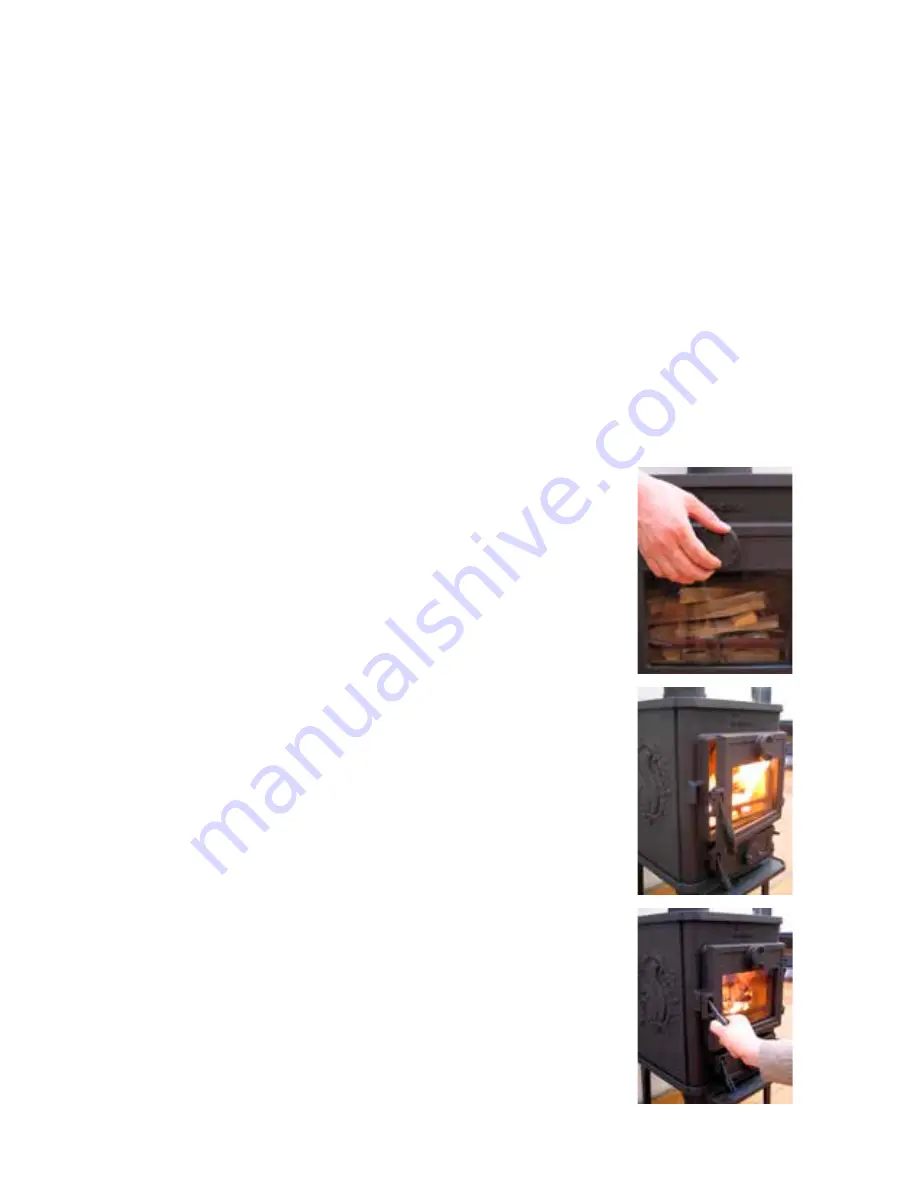
12
DK ENG
In principle
Your stove is fitted with Primary and Secondary air inlets.
Primary Air is controlled using the lever situated under the ash lip of the stove. Moving the con-
trol lever into a downward position will open the air inlet and will allow a supply of preheated
air to enter the firebox via the ‘airwash’ system situated inside the stove and the above glass.
Secondary Air is right to the firebox using the specially designed baffle at the back of the firebox. The
secondary air is injected into the flue gases both above and in front of the fire resulting in a cleaner,
more efficient combustion process. The supply of secondary air is fixed open and is not adjustable.
For extra safety, your stove has been fitted with a removable handle. When not in use the
handle can be stored using the lug behind the right leg of the stove.
2.2 Lighting and loading intervals
When first lighting the stove, a large volume of air is needed. When the stove is cold, you
should leave the door open an inch or two for the first few minutes and open the primary
air supply completely. While the door is open, do not leave the stove unattended. To form
a reasonable bed of ash on the floor of the stove, you should use 5-6 inches thickness (2-4
pound) of dry kindling at the initial lighting. Always maintain a 1-1.5 inch (2-3 cm) layer of ash
on the floor of the combustion chamber at all other times.
1. The air supply must be fully open. Maximum 4 turns.
2. Light the fire. An ember bed will quickly be formed by light-
ing with firelighters, Morsø kindling bags or 7-10 pieces of twist-
ed paper under the dry kindling wood (see above).
3. After lighting, partially close the doors, leaving them open
an inch or two to allow in plenty of combustion air.
4. When the chimney is warmed through after 5-10 min-
utes, the doors should be closed. A suitable ember bed
will be formed after a further 15-20 minutes.










































